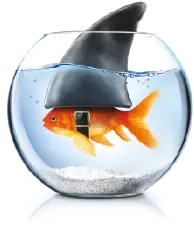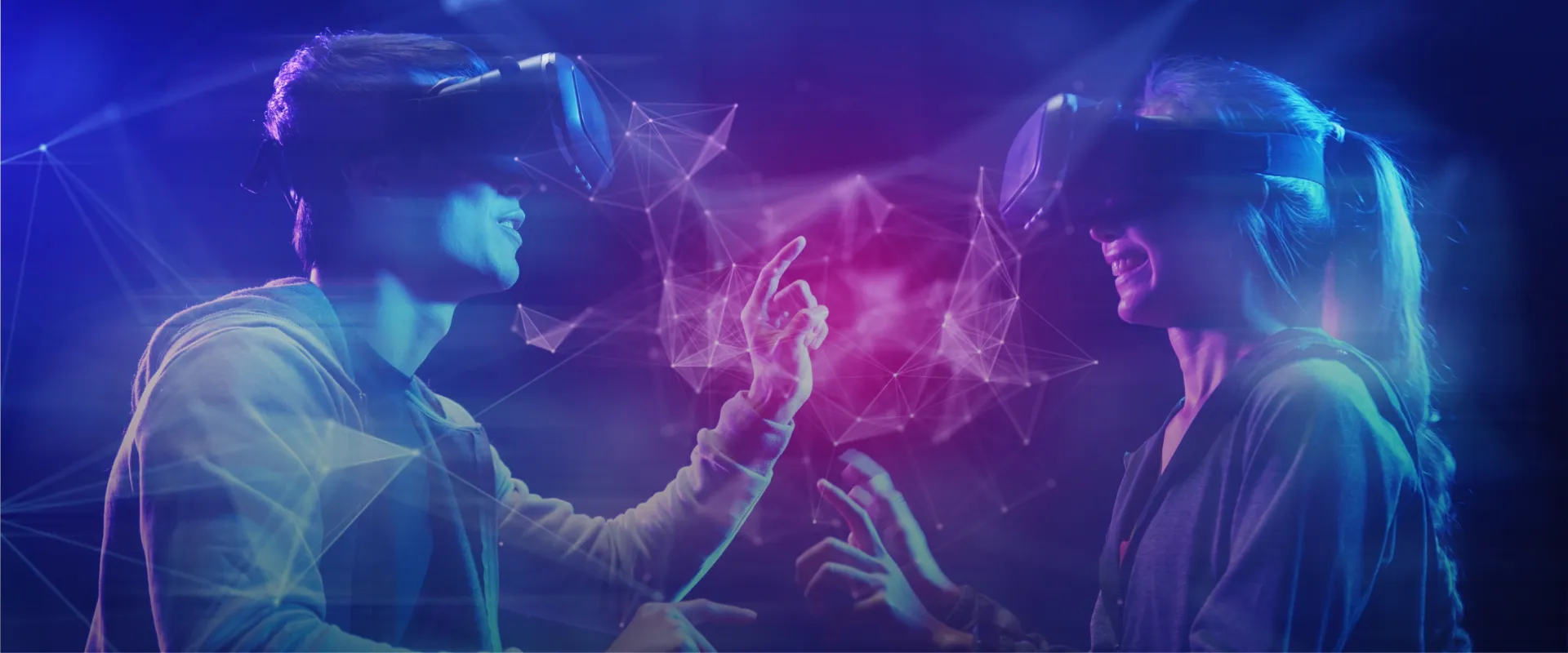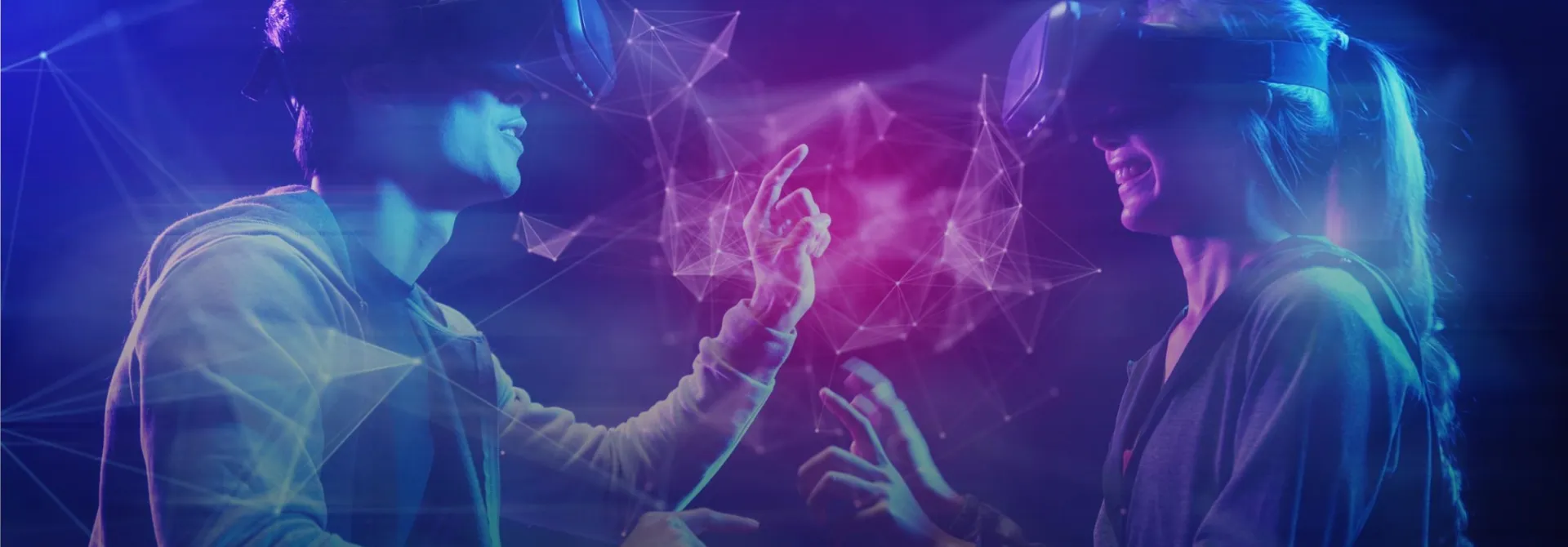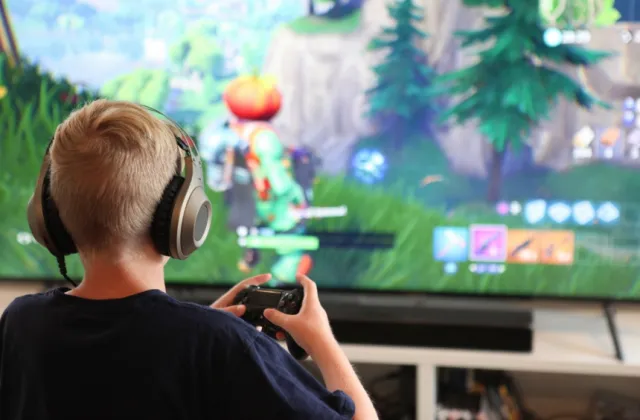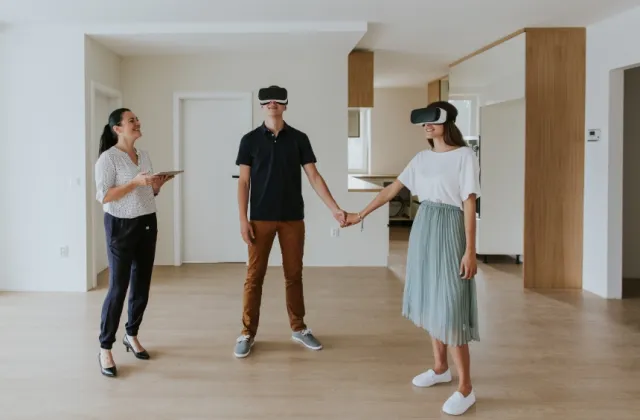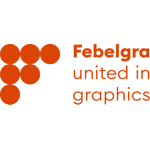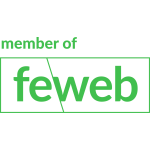What’s the metaverse all about?
Metaverse refers to the (partly) virtual future of the internet. In that virtual future, we will only work, play, travel, party and shop online, in virtual reality (a realistic 3D situation created by a computer) and in augmented reality (virtual aspects added to pictures). Users will be immersed in a series of interconnected virtual worlds. It could be described as a souped up version of the internet we know today.
What can you do there?
1. Video games
The most obvious application is gaming. Every video game could be viewed as a metaverse, albeit quite a limited one. That includes Fortnite and Minecraft. These online games and the virtual identities we use inside them, also known as avatars, create a reality in which everyone can be whoever they want to be, which is not always an option in the real world. They have even created markets for virtual fashion – clothes and accessories – to dress up our avatars.
2. Virtual reality
Lots of Belgian companies already incorporate virtual reality into their business model. One of them is Dovy Keukens, whose app allows you to don VR glasses and explore any kitchen you care to design in 3D. A lot of estate agents have already adopted VR too. During viewings, they offer potential buyers a VR option so they can see how the house will look after renovation.
3. Digital campaigns
You can also bring your brand to life with specially designed digital campaigns. Two leading department stores have quickly realised that. Both De Bijenkorf in the Netherlands and Printemps in France have gone all in on an outstanding digital brand experience.
De Bijenkorf launched the festive season with the ‘Admire and Amaze’ campaign in which visitors can follow the magical journey of the bee through a fairylike forest packed with products. The 3D world is dazzling and inspiring.
Printemps actually built the first virtual store. Visitors can tour the Printemps Haussman in Paris from the comfort of their own home. Starting under the department store’s famous dome, they proceed to an enchanting garden full of exclusive products. A real sight for sore eyes.
4. Virtual concerts
The culture sector is also exploring the possibilities of the virtual world. A good example is a little closer to home: Brussels rapper Zwangere Guy had the honour of performing at Belgium’s first-ever virtual live gig from Ancienne Belgique. Recreated as a completely virtual concert hall, the venue was renamed Nouvelle Belgique especially for the occasion. Asked to register through a gaming platform, attendees could create a personal avatar to explore Nouvelle Belgique and meet other gig-goers.
5. Virtual work environments
And don’t forget virtual workplaces. How we work has changed a lot, especially after covid. Working arrangements are much more flexible now, with more working from home. That suggests opportunities for the metaverse.
Meta, the company that owns Facebook, Instagram and WhatsApp, has built a virtual environment for meeting, working and learning. Users can visit Horizon Workrooms online or with VR glasses to meet and talk.
Metaverse economy
It’ll be no surprise to hear that money also makes the metaverse go round. People are ready to invest their money in this freestanding world. A totally new economy is being established based on NFTs – non-fungible tokens. NFTs are unique virtual certificates of ownership. These are the form in which digital products and services are bought and sold. Anything from artworks and sneakers to land – all virtual of course.
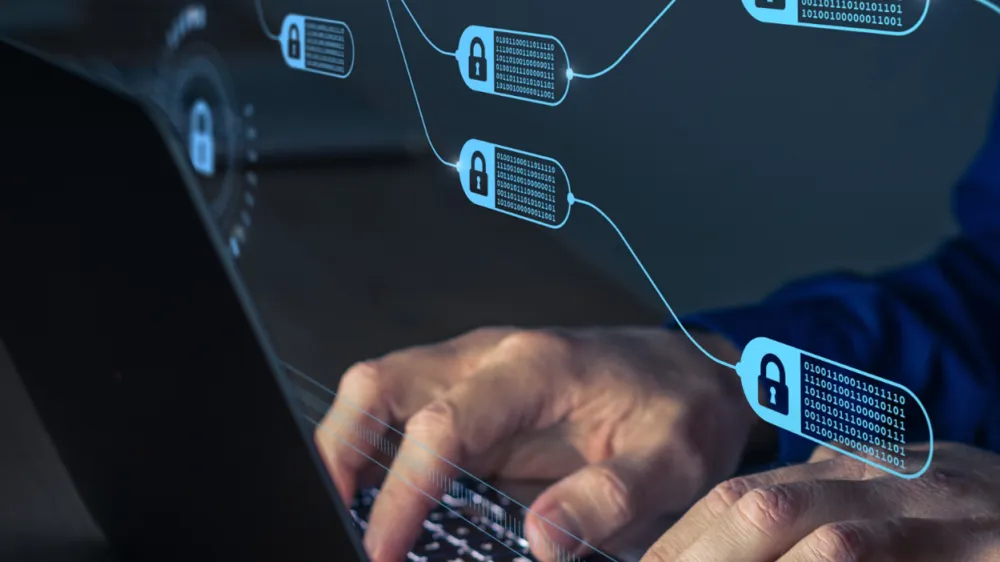
You buy NFTs with cryptocurrency – digital money: the best known one is Bitcoin. You don’t need banks to conduct transactions, either. These are all recorded on a virtual system known as a blockchain. This is a set of data that is maintained across different computers in a decentralised network. Transactions are written to the blockchain in chronological order and cannot be falsified. Security is key!
The future of the metaverse
The metaverse is still in its infancy and so might not seem worth your time right now, but make no mistake, we are already increasingly doing business and getting our kicks online. The ultimate goal of the metaverse is to link up the various applications, but that’s not yet technically possible. The companies behind the various metaverses still have to agree to accept each other’s digital assets. And a metaverse currently has a huge ecological footprint. That’s because the data centres it runs on consume enormous amounts of energy. So there’s still a way to go.
At the moment, the main thing is to be aware of the future possibilities of the metaverse. The complexity might make it seem daunting, but this should not stop you from experimenting with its various applications.
We are happy to advise and assist you to think about how you might approach and market your digital transformation.
